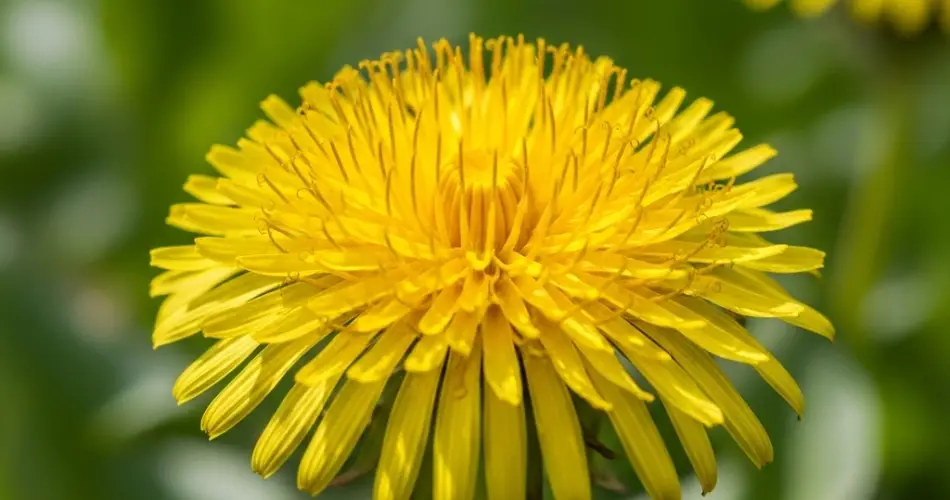When it comes to feeding plants naturally and sustainably, gardeners are constantly searching for organic, eco-friendly options that nourish plants effectively without the harmful side effects of synthetic fertilizers. One often overlooked but powerful natural fertilizer comes right from your yard — the humble dandelion.
Though commonly viewed as a pesky weed, dandelions are packed with nutrients and beneficial properties that can greatly improve soil fertility and plant health. This article explores why dandelions make an excellent natural fertilizer, how to prepare and use them, and the benefits you can expect in your garden.
Why Dandelions Are Great for Your Garden
Dandelions (Taraxacum officinale) are hardy, deep-rooted perennials that thrive almost anywhere. Because of their extensive root systems, dandelions pull up nutrients such as calcium, potassium, and iron from deep underground layers of soil and bring them closer to the surface. This makes the nutrients more available to other plants.
Additionally, dandelions have a high content of nitrogen, phosphorus, and potassium — the three essential macronutrients plants need for growth — making them an excellent fertilizer source. They also contain vitamins A, C, and D, which can help boost soil health and microbial activity.
Benefits of Using Dandelions as Fertilizer
-
Nutrient-Rich: Dandelions provide key nutrients naturally and gradually release them into the soil.
-
Soil Conditioner: Their decomposing leaves and roots improve soil structure, increase organic matter, and enhance moisture retention.
-
Promotes Microbial Life: Adding dandelion matter to soil encourages beneficial microbes that help plants absorb nutrients and fight diseases.
-
Cost-Effective and Sustainable: Using dandelions reduces the need for store-bought fertilizers, cutting costs and minimizing environmental impact.
-
Safe for Edibles: Because it’s natural and free from chemicals, dandelion fertilizer is safe to use on vegetable and herb gardens.
How to Harvest and Prepare Dandelions for Fertilizer
-
Harvest Young Plants: Collect dandelion plants including roots, leaves, and flowers from pesticide-free areas. Young plants tend to have higher nutrient levels.
-
Wash Thoroughly: Rinse the dandelions to remove soil and any insects.
-
Choose Your Method: There are several ways to turn dandelions into fertilizer:
-
Compost: Add fresh dandelion greens and roots to your compost pile. They break down quickly and enrich the compost with nutrients.
-
Dandelion Tea: Soak chopped dandelion leaves and roots in water for 24-48 hours. Strain the liquid and use it as a nutrient-rich foliar spray or soil drench.
-
Mulch: Spread chopped dandelion leaves around your plants as mulch to slowly release nutrients as they decompose.
-
Liquid Fertilizer (Fermented Dandelion Extract): Place dandelion plant parts in a container with water and let it ferment for 1-2 weeks, stirring occasionally. Dilute the resulting liquid before applying to plants.
-
How to Use Dandelion Fertilizer in Your Garden
-
Foliar Feeding: Spray diluted dandelion tea or liquid fertilizer directly on plant leaves to provide quick nutrient uptake.
-
Soil Amendment: Pour dandelion tea or liquid fertilizer around the base of plants to enrich the root zone.
-
Compost Additive: Regularly add dandelions to compost for a nutrient boost.
-
Mulching: Use dandelion mulch around plants to conserve moisture and slowly feed the soil.
What Plants Benefit Most from Dandelion Fertilizer?
Dandelion fertilizer is versatile and can be used on a wide range of plants, including:
-
Vegetables: Tomatoes, peppers, cucumbers, and leafy greens respond well to dandelion nutrients.
-
Fruits: Strawberries, blueberries, and fruit trees thrive with added organic matter and nutrients.
-
Flowers: Annuals and perennials benefit from improved soil and nutrient availability.
-
Herbs: Basil, parsley, and other herbs show stronger growth and flavor.
Tips for Best Results
-
Use dandelion fertilizer regularly during the growing season for steady nutrient supply.
-
Avoid collecting dandelions from areas treated with herbicides or pesticides.
-
Combine dandelion fertilizer with other organic amendments like compost or manure for a balanced nutrient profile.
-
Store homemade dandelion tea or liquid fertilizer in a cool, dark place and use within a week for best potency.
Why Gardeners Should Embrace Dandelions
Instead of battling dandelions as weeds, gardeners can view them as a free, natural resource. Dandelions’ ability to mine deep soil nutrients and enhance soil biology makes them a valuable ally in organic gardening. Using dandelion fertilizer not only improves plant health and yields but also supports sustainable gardening practices that protect the environment.
In summary, dandelions offer an easy, natural, and cost-effective way to enrich your garden soil and feed your plants. From compost additions to nutrient-rich teas, this common “weed” transforms into a powerhouse fertilizer that helps your garden thrive. Next time you see dandelions growing, consider harnessing their natural benefits instead of reaching for chemical fertilizers.



